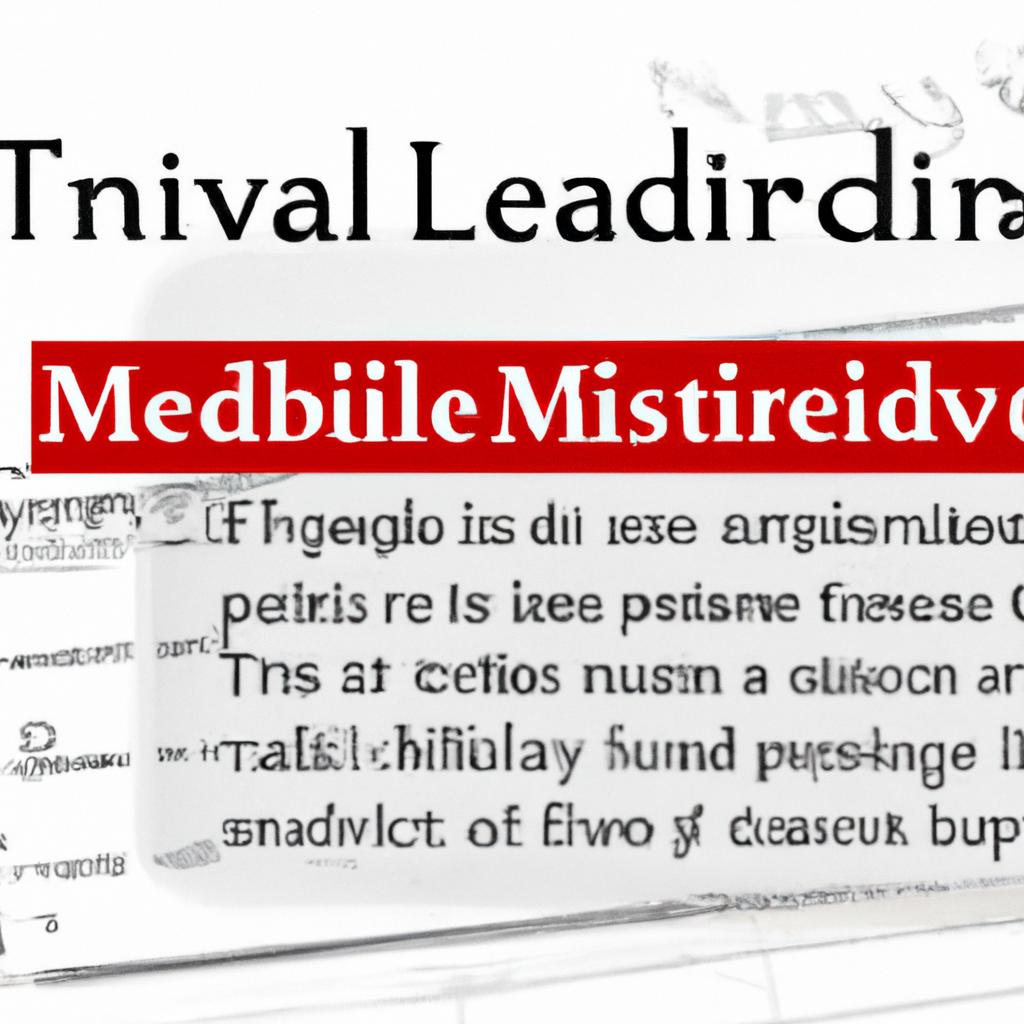As seasoned legal experts in estate planning and elder law, our team at Morgan Legal Group is well-versed in the intricate nuances of crafting comprehensive strategies to protect your assets and ensure your wishes are carried out seamlessly. In this article, we delve into the complex relationship between a revocable living trust and Medicaid spend down, shedding light on how this estate planning tool can have a significant impact on your eligibility for Medicaid benefits. Join us as we navigate the intricacies of estate planning and unlock the potential benefits of incorporating a revocable living trust into your comprehensive financial plan.
Understanding the Basics of a Revocable Living Trust
One important aspect to consider when setting up a Revocable Living Trust is how it can affect a Medicaid spend down. This type of trust can play a significant role in Medicaid planning, as it allows individuals to protect assets while still qualifying for Medicaid benefits.
By transferring assets into a Revocable Living Trust, individuals can effectively reduce their countable assets for Medicaid eligibility purposes. This can help them qualify for Medicaid benefits without having to spend down all of their assets. However, it is important to understand the rules and regulations surrounding Medicaid eligibility and trusts to ensure compliance and avoid any potential issues.

The Impact of a Revocable Living Trust on Medicaid Eligibility
When it comes to Medicaid eligibility, a revocable living trust can have a significant impact on a person’s ability to qualify for benefits. While a revocable living trust is a useful estate planning tool for avoiding probate and managing assets during incapacity, it can also affect Medicaid eligibility due to the way assets are counted for purposes of determining eligibility. It’s important to understand how a revocable living trust can impact Medicaid eligibility and plan accordingly to avoid potential issues.
One key factor to consider is that assets held in a revocable living trust are typically counted as part of an individual’s total assets when determining Medicaid eligibility. This means that if the value of the assets in the trust exceeds the Medicaid asset limit, it could impact eligibility for benefits. Additionally, any income generated by assets in the trust may also be considered when determining eligibility. Properly structuring a revocable living trust and working with an experienced estate planning attorney can help navigate these complexities and ensure that Medicaid eligibility is not compromised.

Strategic Planning Considerations for Medicaid Spend Down with a Revocable Living Trust
Medicaid Spend Down Process:
When an individual needs long-term care and does not have sufficient income or assets to cover the costs, they may need to “spend down” their assets to qualify for Medicaid. This process involves reducing the individual’s assets to a certain level set by Medicaid guidelines in order to become eligible for benefits.
Revocable Living Trust Impact:
A revocable living trust can complicate the Medicaid spend down process as it allows assets to be transferred to the trust, potentially affecting eligibility for Medicaid benefits. Assets held in a revocable living trust may still be counted as part of the individual’s assets when determining Medicaid eligibility, which can impact the overall spend down strategy.

Consulting a Knowledgeable Elder Law Attorney for Personalized Advice
When creating a Medicaid plan, it is essential to consider the impact of a revocable living trust on the Medicaid spend down process. A revocable living trust allows individuals to transfer assets into a trust during their lifetime, which can help avoid probate and provide flexibility in managing assets. However, when it comes to Medicaid eligibility, assets held in a revocable living trust may still be counted towards the applicant’s total assets. It is crucial to consult with a knowledgeable elder law attorney who can provide personalized advice on how to structure your estate plan to protect your assets while also qualifying for Medicaid benefits.
One strategy that an elder law attorney may recommend is to create an irrevocable trust instead of a revocable living trust. Assets held in an irrevocable trust are typically not counted towards Medicaid eligibility requirements, as the individual no longer has control over the assets once they are transferred into the trust. By working with an experienced attorney, you can create a Medicaid plan that incorporates the use of trusts to protect your assets and ensure that you are able to qualify for the benefits you may need in the future.
Q&A
Q: What is a revocable living trust?
A: A revocable living trust is a legal arrangement where assets are placed into a trust while the individual is alive, and can be changed or revoked at any time.
Q: How does a revocable living trust affect a Medicaid spend down?
A: Assets in a revocable living trust may be counted as part of an individual’s assets for Medicaid eligibility, potentially impacting their ability to qualify for benefits.
Q: Why might someone want to create a revocable living trust if it can affect their Medicaid eligibility?
A: A revocable living trust can provide benefits such as avoiding probate, ensuring privacy of assets, and allowing for the management of assets in the event of incapacity.
Q: What are some strategies for using a revocable living trust while still planning for Medicaid?
A: Consulting with an attorney who specializes in elder law can help individuals create a trust that aligns with their estate planning goals while also considering potential Medicaid implications.
Q: Are there any alternatives to a revocable living trust that may be better suited for Medicaid planning?
A: Irrevocable trusts, annuities, and gifting strategies are other options that may help individuals plan for Medicaid eligibility while still protecting their assets.
To Conclude
In conclusion, a revocable living trust can have a significant impact on the Medicaid spend down process. By properly structuring your trust, you can potentially protect your assets and ensure that you are able to qualify for Medicaid when the time comes. It’s important to carefully consider the implications of a trust on your Medicaid eligibility and consult with a qualified estate planning attorney to ensure that you are making informed decisions. By taking the necessary steps now, you can help secure your financial future and protect your assets for yourself and your loved ones.
 Why A Revocable Living Trust Can Affect A Medicaid Spend Down
Why A Revocable Living Trust Can Affect A Medicaid Spend Down
As we grow older, it is natural to start thinking about how to financially protect ourselves and our loved ones. This is where estate planning comes in, which involves creating a plan for the distribution of our assets after our passing. A revocable living trust is a popular estate planning tool, and for good reason. It offers numerous benefits, such as avoiding probate and allowing for flexibility in managing assets. However, one area that many people don’t realize a revocable living trust can impact is a Medicaid spend down.
In this article, we will explore what a revocable living trust is, how it can affect a Medicaid spend down, and some practical tips to consider when including it in your estate planning. So, let’s dive right in!
Revocable Living Trust – What is it?
A revocable living trust is a type of trust that is created during the lifetime of the person establishing it, also known as the grantor. The grantor transfers their assets into the trust and designates beneficiaries who will receive those assets upon their passing. Unlike an irrevocable trust, where the grantor gives up control of their assets, a revocable living trust allows the grantor to maintain control and make changes or even revoke the trust entirely if they wish.
How does a Medicaid spend down work?
Medicaid is a federal program that provides health insurance to low-income individuals and families. It also offers long-term care coverage for those who require assistance with activities of daily living, such as bathing, dressing, and eating. However, to be eligible for Medicaid, an individual must have limited income and assets. This is where the concept of a Medicaid spend down comes into play.
A Medicaid spend down is a process of reducing one’s assets to the required threshold in order to qualify for Medicaid coverage. This threshold varies by state but is typically around $2,000. In other words, if an individual has assets above this amount, they will need to spend down those assets before they can receive Medicaid coverage.
How can a Revocable Living Trust affect a Medicaid spend down?
One of the key benefits of a revocable living trust is that it allows the grantor to maintain control over their assets. However, this can also have implications when it comes to Medicaid eligibility. Let’s take a look at how a revocable living trust can impact a Medicaid spend down.
1. Assets in the Trust are Counted towards the Spend Down Threshold
As mentioned earlier, to qualify for Medicaid, an individual must have limited assets. Some assets, such as a primary residence, are exempt from the spend down calculation. However, assets held in a revocable living trust are not exempt. This means that if the grantor has a revocable living trust with assets above the spend down threshold, they will need to either spend down those assets or remove them from the trust to qualify for Medicaid coverage.
2. Trust Distributions can be Considered Income
Another way a revocable living trust can impact a Medicaid spend down is through trust distributions. If the grantor receives any distributions from the trust, they may be considered income and could affect their Medicaid eligibility. This is especially true if the distributions exceed the income threshold for Medicaid.
3. Timing of Trust Creation is Crucial
Timing is everything when it comes to a revocable living trust and Medicaid planning. If a trust is created less than five years before the grantor applies for Medicaid, it could be subject to the “five-year lookback” period. This means that Medicaid will review any transfers made within the five years prior to the application to determine if they were done for the purpose of reducing assets and qualifying for Medicaid. If the review finds that this was the purpose, the individual may face a penalty period where they are not eligible for Medicaid coverage.
Practical Tips when Including a Revocable Living Trust in Estate Planning
Now that we know how a revocable living trust can affect a Medicaid spend down, here are some practical tips to consider when including one in your estate planning.
1. Consult with an Attorney
Estate planning can be complex, especially when it comes to Medicaid eligibility. It is always best to consult with an attorney who specializes in elder law to ensure your trust is set up in a way that does not negatively impact your Medicaid eligibility.
2. Consider an Irrevocable Trust
If Medicaid planning is a priority in your estate plan, you may want to consider an irrevocable trust instead of a revocable living trust. Unlike a revocable trust, an irrevocable trust removes the grantor’s control over their assets, making them exempt from the Medicaid spend down calculation.
3. Keep Detailed Records
To avoid any issues with the Medicaid five-year lookback period, it is essential to keep detailed records of all trust transactions, including distributions and transfers. This will help prove that any actions taken were for legitimate purposes and not solely for the purpose of qualifying for Medicaid.
In conclusion, a revocable living trust can have a significant impact on a Medicaid spend down. While it offers numerous benefits in estate planning, it is crucial to understand how it can affect your Medicaid eligibility and to plan accordingly. Consulting with an attorney and keeping detailed records are just a few ways to ensure your trust is set up in a way that achieves your goals while also protecting your eligibility for Medicaid.

